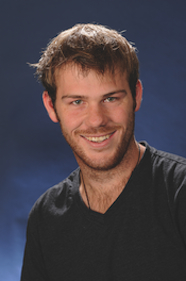George started working as an Assistant Research Fellow (ARF) based in the Cancer Genetics Laboratory. He then moved to the Mackenzie research group section of CTCR in Christchurch where Geroge is working part-time as an ARF while also undertaking his PhD in breast cancer research.
An interview with George during his first ARF role
Reducing side-effects for patients
His research is about trying to predict which patients receiving the drug Capecitabine are likely to experience serious side effects. If this can be reliably predicted doctors and their patients can consider modified approaches.
George conducts his work by doing a genetic screen of patients to find factors that may have a role in this toxic response.
"The knowledge that you may be able to increase the quality of life of people affected by cancers gives you a real goal to strive for."
Meticulous process to test an idea
George finds the most difficult element of his lab work is the huge amount of time and hard work it takes to investigate and confirm, or disprove, a great lead.
One of the most important things he has learned is to bounce ideas off your lab-mates: everyone has a different perspective so they may pick up on something you have completely overlooked.
Enjoying the "whys" of life
He really enjoys working in a research environment and wants to make a real impact with his research. His advice for aspiring researchers is if you enjoy the "whys" of life then research is a good path for you. Follow the subjects you enjoy most and always keep questioning.
As a youngster George had always enjoyed science but wasn't at all sure what he wanted to be, although he always intended to come to Otago University. Biology, calculus and accounting were his favourite subjects at school. Both his parents are medical professionals and encouraged his study.
Outside the lab George is mad keen on sports and declares he would play any and all sports given the chance!

